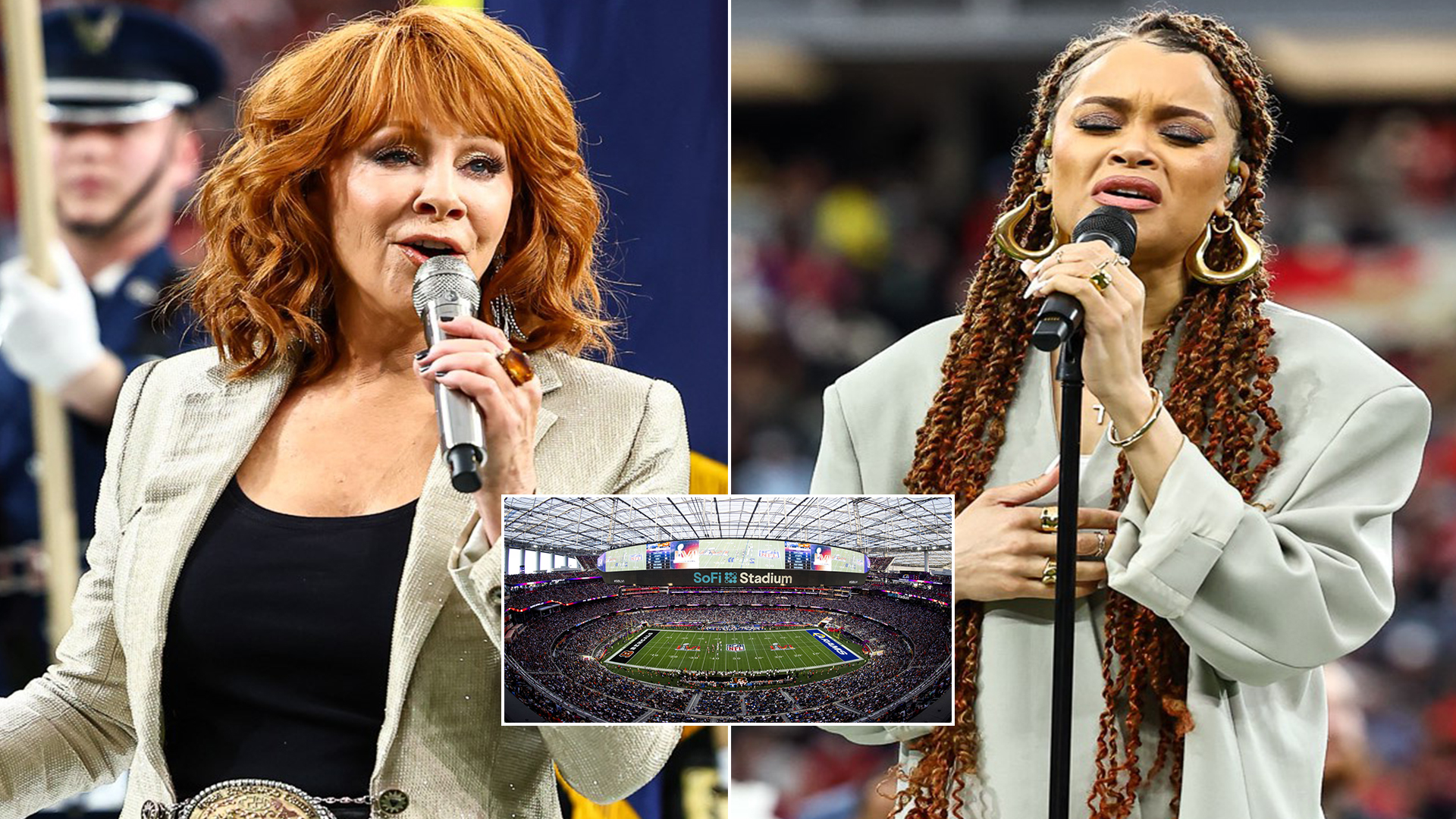The Super Bowl LVIII halftime show became a focal point for fans and viewers, showcasing the contrasting reactions to two prominent musical performances. While country music legend Reba McEntire received widespread applause, Andra Day’s rendition of the Black National Anthem faced notable backlash from some segments of the audience.
Reba McEntire opened the show with her signature style, delivering a powerful performance that resonated with fans. Known for her rich voice and engaging stage presence, McEntire brought an energetic vibe that was well-received by the crowd. Her performance highlighted her deep roots in country music and showcased her ability to connect with fans of all ages. As she sang, the audience joined in, celebrating the joy and tradition of American music. The cheers for McEntire were loud and enthusiastic, reflecting her popularity and the warmth she brings to the stage.
In stark contrast, Andra Day’s performance of the Black National Anthem, “Lift Every Voice and Sing,” elicited a different reaction. While many viewers appreciated the historical significance of the song, a segment of the audience booed during her rendition. The mixed response highlighted the ongoing cultural conversations surrounding representation and inclusion in American sports and entertainment.
“Lift Every Voice and Sing” has been recognized as a powerful anthem for the African American community, celebrating resilience and unity. Day’s performance aimed to honor that legacy, but the booing from some fans raised questions about the acceptance of diverse cultural expressions in mainstream events like the Super Bowl. The division in reactions underscores a larger societal dialogue about race, identity, and the role of music in bridging divides.
Fans who cheered for McEntire often expressed their love for traditional country music and the nostalgia it evokes. Many see her as a quintessential figure in American music, embodying values of unity and community. On the other hand, the negative reactions to Day’s performance reveal a resistance among some fans to embrace songs and themes that reflect a broader spectrum of American identity.
The Super Bowl, as one of the most-watched events in the United States, serves as a microcosm of the nation’s cultural landscape. The diverse reactions to these performances mirror the complexities of contemporary American society, where issues of race and representation are increasingly at the forefront of public discourse.
In the aftermath of the event, social media lit up with discussions about the performances. Supporters of Day praised her for bringing attention to an important cultural moment, while critics voiced their displeasure, often citing a desire for more traditional performances. This dichotomy emphasizes the challenges of navigating an increasingly diverse audience that holds varying expectations for entertainment at such high-profile events.
As the dust settles from Super Bowl LVIII, the contrasting responses to Reba McEntire and Andra Day highlight the ongoing need for dialogue about inclusion and representation in American culture. While music has the power to unite, it can also expose underlying tensions within society. The event serves as a reminder that, in a diverse nation, embracing different voices and experiences is essential to fostering understanding and connection.
Ultimately, the Super Bowl LVIII performances offered a glimpse into the current cultural climate, reminding us that celebrations of music and heritage can evoke both joy and discord. As fans continue to reflect on the event, it becomes clear that these conversations about representation and inclusion will remain vital in shaping the future of American entertainment.
